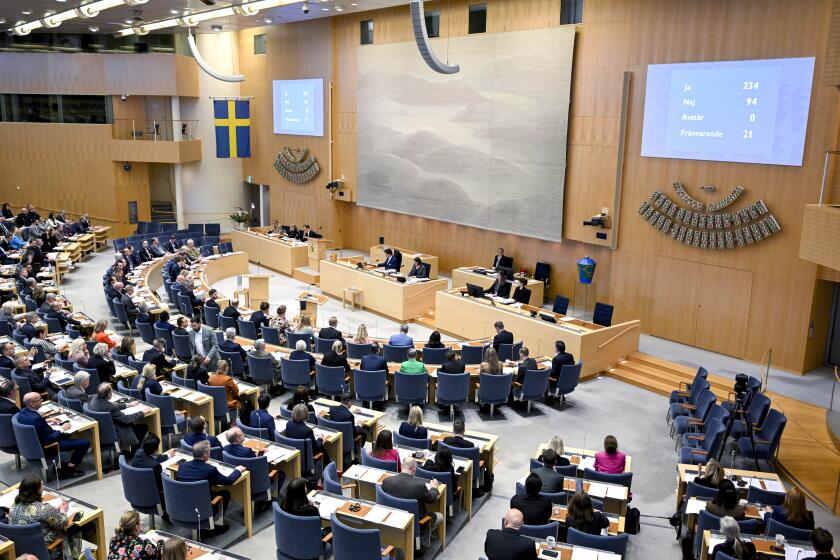White House quietly prepares for a post-Mubarak era in Egypt
A tight-lipped White House is taking an even-handed approach to the crisis in Egypt, suggesting that President Mubarak might be able to hold onto power if he allows competitive elections and restores individual freedoms. But inside the Obama administration, there are signs that officials are preparing for a post-Mubarak era after three decades.
One former senior administration advisor said he had spoken to his old colleagues inside the Obama administration in recent days about the unrest in Egypt. As early as last Wednesday, the Obama administration recognized that they would not be able to prop up the Mubarak regime and keep it in power at all costs, the former official said.
“They don’t want to push Mubarak over the cliff, but they understand that the Mubarak era is over and that the only way Mubarak could be saved now is by a ruthless suppression of the population, which would probably set the stage for a much more radical revolution down the road.”
Obama gave a much-publicized speech in Cairo in 2009 warning that governments cannot suppress people’s rights. With protesters massing in the street demanding Mubarak’s ouster, Obama would be hard-pressed to side with a repressive leader.
Obama administration officials “recognized that change was coming and they needed to be on the right side of history and not try to keep Mubarak in power against all odds,” the former official said. “It’s a very difficult balance to be struck. Mubarak is, after all, a friend of the United States for the last 30 years. A lot of our allies in the region -- the Saudis, Jordanians and Kuwaitis -- will be particularly nervous if it looks like the U.S. is doing in one of their friends.
“The administration understand this. But the most important thing they understand is that they have to get in front of this and not behind it.”
The former administration official spoke on condition of anonymity so that he could be more candid about sensitive diplomatic issues.
The White House is trying to deliver a consistent message on fast-moving events in Egypt, dispatching Secretary of State Hillary Clinton, one of the more disciplined speakers in American politics, for a round of Sunday talk-show appearances.
Obama is monitoring events through regular briefings with staff and close consultation with regional allies.
On Saturday, he spoke to Israeli Prime Minister Benjamin Netanyahu, King Abdullah of Saudi Arabia, and to Turkish Prime Minister Recep Tayyip Erdogan, the White House said.
Obama received a briefing on the Egyptian crisis at the White House on Saturday and Sunday and also spoke to Prime Minister David Cameron of Britain on Sunday.
In the course of those conversations, Obama urged “an orderly transition to a government that is responsive to the aspirations of the Egyptian people,” the White House said in a prepared statement on Sunday. Obama also asked the various leaders to assess the turmoil in Egypt.
More to Read
Start your day right
Sign up for Essential California for news, features and recommendations from the L.A. Times and beyond in your inbox six days a week.
You may occasionally receive promotional content from the Los Angeles Times.






